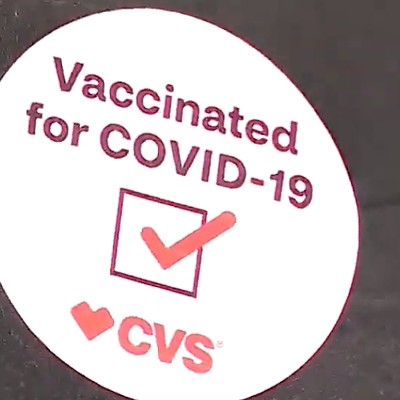It's a never-ending debate around these parts. What is Creole? Is it the same as Cajun? If not, why not?
And let's say you were an Australian supermarket chain and were looking for a name for your in-house generic rip-off of the Oreo, and you decided to call it the "Creole Cream." Should you expect a visit from the PC Brigade?
If you answered no, think again. Aussie grocers Coles recently found that out the hard way, when they were broadsided Down Under by a professor of Aboriginal descent.
"The word Creole comes from a period when people's humanity was measured by the amount of white blood they had in their bloodstream. This is the same kind of thought that underpinned horrific regimes like the Nazis," Sam Watson, the deputy director of the Aboriginal and Torres Strait Islander Studies Unit at the University of Queensland, told brisbanetimes.com.au yesterday.
A spokesman for the grocery chain denied any racist intent. He said the name referred to the "well-known Creole cuisine style that originated in the US.''
It certainly seems to us less offensive than Dairy Queens Moo-Latte milkshake, which we called into question five years ago, thus inspiring Slate to chime in from their ivory tower..
And one thing's for sure: Watson's head would explode if he ever visited Houston, where there are whole apartment complexes called things like the Creole at Yorktown and Memorial Creole, and where Cajun/Creole is one of the more popular cuisines. Googling Houston and Creole gives you almost a million results.
We put the Creole Cream question to Linda Smith, the Breaux Bridge, Louisiana-bred proprietor of the Louisiana Creole Cafe on Dowling Street in the Third Ward.
First off, she was as puzzled as we were about the allegedly Creole food in question.
"I don't know what any of this has to do with an Oreo cookie," she laughed.
"But the only thing I can say about 'Creole' is what my grandmother and them always would tell us: that we were Creole because we were African-American. My grandmother's ancestors were slaves from Africa. They always stipulated that Cajun was for Caucasians and Creole was for African-Americans. So what they said in Australia about the Oreo, no."
One of the reasons the debate rages on is that there are two distinct definitions of Creole in the state of Louisiana. At least two..."Everybody has a different definition for Creole," Smith says.
In the city of New Orleans, Creole most often today refers to the descendants of mixed-race, French-speaking "free people of color," who long occupied a place on the social ladder in between whites and English-speaking blacks. Often they were artisans and tradesmen and substantially more educated and well-off than the rest of the black community, not just in New Orleans, but pretty much anywhere else in the United States.
And if you go back further in New Orleans history, Creole had other meanings. It once referred to white French-speakers born in the New World, as opposed to more recent immigrants from France.
But New Orleans was a complex city comprised of English and French-speakers, Catholics and Protestants, both black and white. In large swaths of rural south Louisiana, until World War II, virtually everybody was Catholic and spoke French. Thus there came to be a binary way of looking at the question. As Smith said, the whites were, and are, Cajuns and the blacks were and are Creoles.
Smith says that Creole also refers to the language spoken in south Louisiana, which she believes has its origins in and still bears a marked resemblance to that spoken in the Dominican Republic, which shares a small island with the former French slave colony of Haiti.
During the slave revolt in Haiti, many French plantation owners fled to Louisiana with their slaves and their language and their Creole identity. Others fled into the Dominican Republic, and that country has experienced heavy Haitian in-migration ever since. Smith says that on a recent trip to Miami to visit in-laws, she overheard some white Dominicans, understood every word and mistook them for south Louisianans.
Which takes us pretty far afield from a generic Australian Oreo. Smith can't understand what the term Creole has to do with such a traditionally all-American cookie. Hair Balls agrees and put it to her that it's such a stretch to label it Creole, that maybe there was a (possibly well-meaning) racial slant after all. Maybe the whole thing is less literal than, like, metaphysical or something.
Smith cackles. "Yes, it has that white marshmallow center and that black outside....I don't know. I don't know. I just don't know."
So maybe that PC Aussie professor should have looked at this whole thing with a more benign eye. As Jerry Seinfeld once mused in regard to a similar ebony `n' ivory confection, "If only people would look to the cookie, all our problems would be solved."






